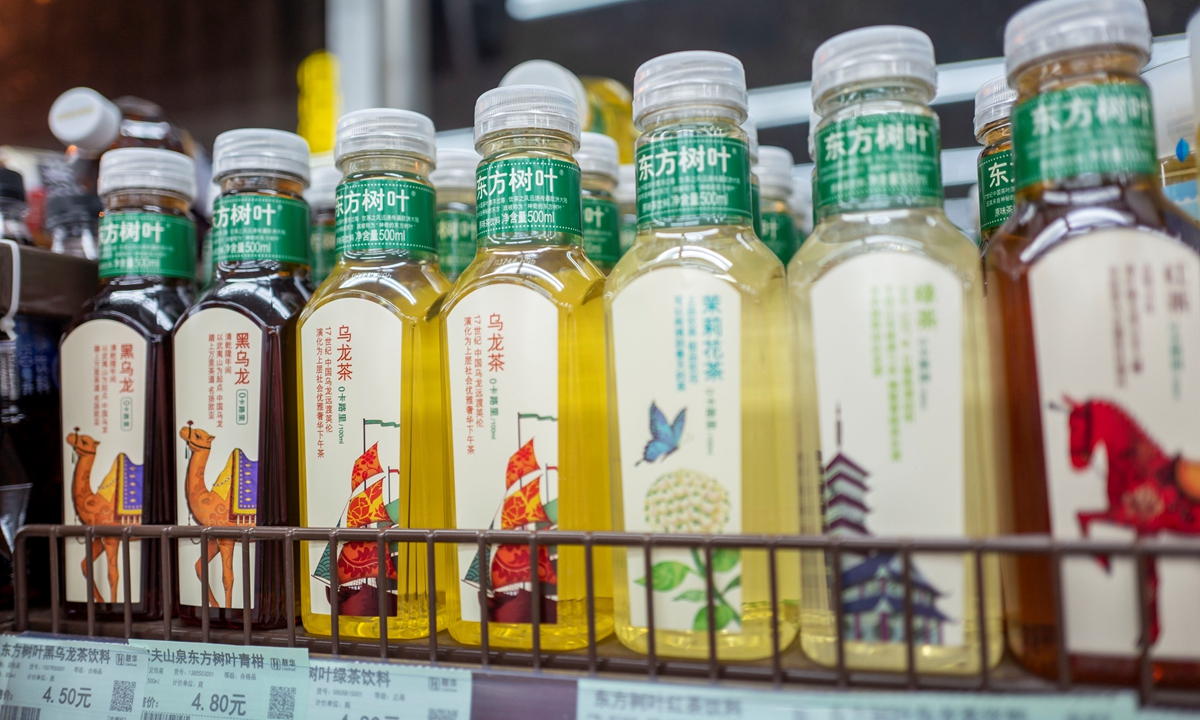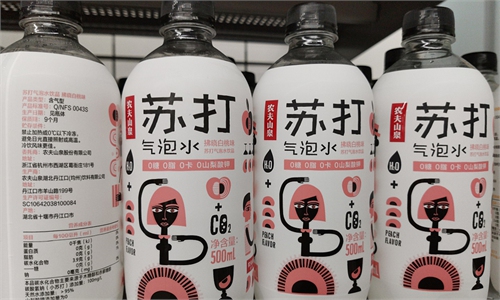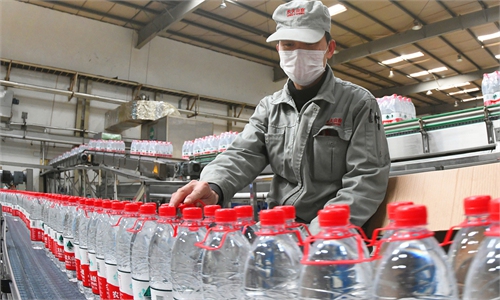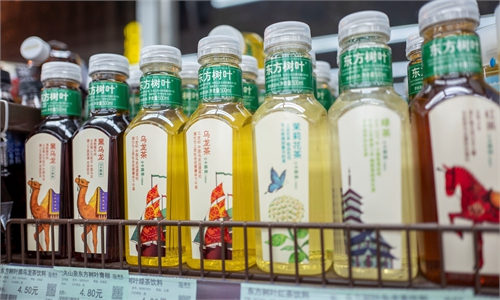7-Eleven branches in E.China stop selling Nongfu Spring products over ‘flattery toward Japan’ controversy; decision not company stance

Oriental Leaf series of Nongfu Spring Photo: IC
The decision to stop selling any products under the Chinese bottled water giant Nongfu Spring does not represent 7-Eleven's stance, the Japanese convenience store chain responded on Monday after two of its branches in China made the move in protest against Nongfu Spring's alleged "flattery toward Japan."
A notice posted by two 7-Eleven stores in Changzhou, East China's Jiangsu Province, grabbed headlines across China's social media platforms in recent days. In the notice put up on Friday, it said that "we will cease the sale of related products from Nongfu Spring. Products from all countries are available for purchase, but items endorsing Chinese companies' flattery toward Japan behavior will not be sold."
Responding to controversy triggered by the notice, 7-Eleven's Jiangsu headquarters said on Monday that the decision was employees' personal behavior, and does not represent the company's stance.
The Chinese beverage brand become embroiled over packaging of its Oriental Leaf Green Tea drink, as some questioned the design featured Japanese religious buildings.
Nongfu Spring later clarified that the packaging design is inspired by Chinese temples, not Japanese ones, and that the text on the bottle is about Japanese tea culture originating from China.
While the complicated sentiment toward Japan may be sparked by Japan's invasion of China during WWII, some criticized "blind patriotism" as causing greater harm to national interests.
In an article published online by an official WeChat account of East China's Zhejiang Province, it lambasted the escalating trend of using the guise of patriotism to leverage public sentiment online for the purpose of generating traffic.
"Some individuals exploit patriotism for personal gain, inciting emotions to garner attention and thus make profit. Some self-media bloggers ignore or violate basic common sense and fabricate rumors, so as to earn traffic," the article said. "Patriotism is the purest, simplest, and noblest sentiment in everyone's heart, how can it be desecrated and consumed in this way!"
Chinese brands used to prefer adding foreign elements into their product design to look "fancy", which is why some of the packaging seems to reflect Japanese aesthetics. However, as Chinese consumers' confidence in their own culture grows, such design has lost appeal and even evoked resentment, analysts said.
Prior to the Nongfu Spring incident, a number of Chinese brands have also come under fire because of its purposeful imitations of Japanese associations.
A high-end tea and baked goods shop in China changed its name from Nayuki to Naixue in November 2022, after it was blamed for using Japanese hiragana particle in its slogan design. Similar changes were made by Chinese beverage manufacturer Yuanqi Senlin, who used to go with the name "Genki Forest" to imitate Japanese pronunciation.
Global Times



